“Never, Ever Give Up” – Fighting the System to Get my Children Back
Note: Names of the children have been changed to protect their identity.
Alicia is a mum of four children. Her youngest Thomas was born just before two of her older children were returned to her care. Jane and Kevin were taken away from Alicia when they were 2 and 19 months respectively. The Department of Family and Community Services sought to place the children on 18 year permanent placement orders within 6 months of their removal. Alicia also has an older daughter, Chelsea, who is still in foster care in Queensland. She hasn’t seen Chelsea for 9 years.
Alicia asked Lucy, an Accredited Mental Health Social Worker, to assist her in recording her story of ‘surviving the system’ and getting her children back. It is important to Alicia to share her experience with other parents, so that they might gain some insight into what it is like to get their kids back after such a long time. She hopes other families might learn what to look out for and get as much support as possible especially if they don’t have family living close by. I think it’s really important that families actually don’t have unrealistic expectations as to what’s going to happen. Alicia’s intention is to bring hope back to families that have given up.
No-one in Alicia’s family would be surprised that Alicia is sharing her story to help others. Alicia says she loves helping other people. In fact, even while her children were in the care of the Department, Alicia was giving her time to help raise her step-grandchild, whose mother lacked family support. I did miss my own kids at the same time, but I just kept going. I thought to myself, my kids will be okay for me to do this. (My grandkids) were like my little tools to help me to grow as a person and I definitely wouldn’t have it any other way.
In sharing her experience, Alicia is driven by two important beliefs. Firstly, that family is really important and they should always stick together no matter what, through hardship and happiness. If you go through everything together, you always know you can get through it, because you have each other. Alicia learned the importance of family the hard way. I came from a family that didn’t really stick together, so basically from a broken home. I wanted something different for my family. Mothers, fathers and children are meant to be together. It shouldn’t be separated. We should have always been together, learning and growing.
Secondy, Alicia believes every child deserves a great childhood. I grew up with quite bad parents that weren’t there to love and care for me. I was in a youth refuge at 14. I had complete strangers teach me to cook. I never wanted that for my kids. I wanted to be able to do it for myself. I wanted to teach them stuff that parents should, instead of missing out all the time. I missed out for way too many years, I don’t plan on missing out on anymore. My kids deserved better than the broken childhood that I had.
This is Alicia’s story of strength, resilience and never giving up.
I was put on to the methadone program to get off the drugs. Every time I went to see the doctor, he kept increasing the dose. In the end, I was on 90 mls of methadone. I would walk from my house with the kids in the pram. It would take me 45 minutes to walk to the hospital. I would get home and the kids would be playing and I’d be out like a light, fall asleep. Something finally started to click in my head, so I went back to the methadone clinic and said ‘I need to go down, it’s too much’. I told them I was going home and going to sleep. They said ‘no’. I stuck my finger up at them and I said ‘see you’ and walked out. I didn’t go back there. After 24 or 48 hours they have a duty to inform DOCS, so it all come to a head. That’s when they [DOCS] started to intervene.
Alicia and her partner decided to get help from a doctor to get off Methadone. There can be some hectic side effects coming off Methadone. You end up really sick, so they (DOCS) said ‘there’s a spot up at the childcare centre for the kids if you want to put them in’ and I said ‘Okay cool, that’s great’.
While Alicia was undergoing treatment, DOCS were preparing to remove the children. They actually waited until after Christmas and said ‘right we have an extra day at the childcare centre. You can send them there, so you can go to court’ and I said ‘okay, no worries’.

On Court Day, Alicia had no idea what was about to happen. My brain was not functioning normally. While I was at court the judge said ‘right the kids are to be removed’, so when I put them on the bus that morning, I didn’t see them again. I wasn’t expecting it. I guess I was in my own little fairytale to think they weren’t going to be removed.
Looking back Alicia has some best guesses about what DOCS were concerned about, although she says it was never clearly explained to her at the time and if it was, she didn’t understand it. Drugs, domestic violence, and apparently abuse and neglect but I don’t believe that. I didn’t hear anything except for the fact that the kids were going to be removed. None of it registered. I still remember it as if it was yesterday, but I was only 21.
My heart just broke. I had the anger then. I was actually outside the courthouse with my partner and we walked down the street and then he rang his mum. His mum and her boyfriend were going to come down and pick us up. We ended up turning around and walking back up and I saw the boss of DOCS. I nearly broke his arm trying to get to her, but he held me back, which I’m thankful for because I wouldn’t like to think what I would have done.
I had to go home to an empty house.
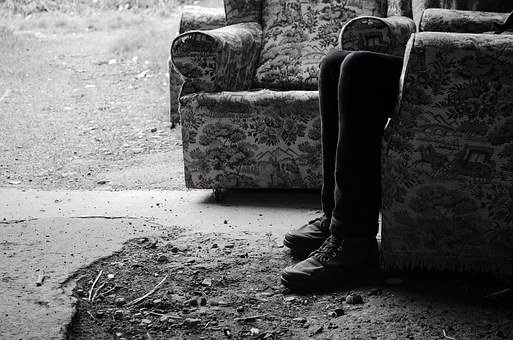
Alicia had a lot of time on her hands to think about her treatment by the Department and how it led to her kids being removed. On one occasion while doing an assessment with DOCS, a psychologist told her she had no attachment to her daughter. It was disgusting. Because at that time of the year, the World’s Greatest Shave was on, I shaved my head to raise money. But he wrote that I had an aggressive haircut and there was no attachment between me and my kids. I wondered ‘whose kids you were looking at’ considering every time I saw my daughter [on access visits], she was attached to me. It made me really, really angry. To be honest all I felt was judged.
Having been told she had no attachment to her children, the effect on Alicia was devastating. It just made DOCS job easier, but it just destroyed me. Because the kids were so young, there was supposed to be a six month period, where I could have got off the drugs to clean myself up. I could have got those kids back but I wasn’t even told about it, until just before the six months was up. Because I thought I couldn’t get the kids back, the drugs got a hold of me again. They made it clear the whole time that I wasn’t going to get them back. The way they looked at me, that body language speaks louder than words. They basically looked down on me and said ‘you’re not going to get better’.
I probably gave up in the first bit, so I just did more drugs. I just used it more to numb the pain, but unfortunately it was only a temporary fix.
About two years later, Alicia ended up having another baby. Alicia’s experience with the Department (DCS in Queensland) was about to get a whole lot worse. Child Safety turned up to the hospital. They were nasty pieces of work, both of them. Not even 24 hours after I had her [Chelsea] I was doped up to the eyeball and just had a caesarean, they came up and were asking me all these questions about Jane and Kevin. I looked at them and I said what’s ‘Jane and Kevin got to do with it?. I’ve just had another baby, what the hell are you going on about? The counsellor ended up having to ask them to leave. I was in that much of a mess that I went down to the special care Nursery and stood there, staring at my baby, crying and couldn’t even touch her. I just couldn’t do it, basically they just destroyed me. That was the most horrific experience of my life. And then straight up they wanted a urine test. I wasn’t even in the right frame of mind. Unfortunately I made the mistake of taking a Valium [from my partners supply because I couldn’t sleep] and that’s all it took. They made me leave the hospital without her.
When we went into the DCS office a couple of days later this young one, just out of uni was sitting there going ‘You know, if that urine test had been clean you would have been taking your baby home today’. I nearly jumped that table but you know what? I didn’t. I just wanted to lunge over that table and destroy her like they just destroyed me. I wasn’t in the right frame of mind. I was off in Fairyland with all the drugs from having the operation done. When you’re on Morphine, it keeps you awake. It doesn’t actually allow you to go to sleep unless you’re completely dosed up. I made that one silly mistake. I had one Valium and they [DCS] just rubbed it in my face. I will never ever forgive Child Safety for what they did, because that just destroyed everything. [The took away] my sanity, my dignity, the whole lot gone out the window, I had nothing left. I still don’t know how the buggery I survived. It was horrific having to leave the hospital without my baby. That was the day my heart was shattered. It was already broken and then they just smashed it.
I went back to the drugs again because I thought ‘what have I got now’? I was at wit’s end, but I still went and saw the other two. I always remain connected with the other two kids.
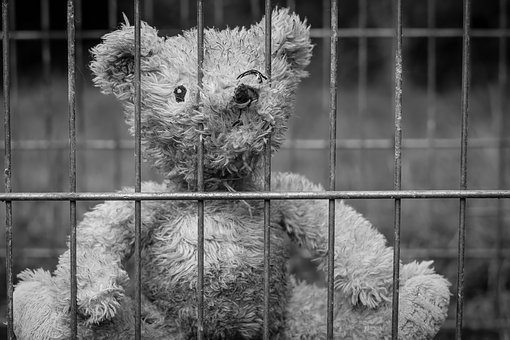
Staying connected to her children was so important to Alicia, but it was not an easy task living in Brisbane and travelling to the Gold Coast for visits without any assistance. It used to take me 4 hours maybe longer to get there just for two hours. I was buggered by the time I got home. Logistically it was really tough. They [DCS] were still looking down on me. I didn’t worry about them. I just continued to see the kids. When Chelsea was about two I was having unsupervised contact. Then I don’t even remember why or what happened, but I was cut off. I was pretty unstable, but I wasn’t doing drugs. I was going from house to house. I didn’t have stable accommodation. Then my partner got a payout from an accident he had at work. We went and got a three bedroom townhouse, brand new furniture and set it up for the kids. They [DCS] basically said ‘up yours’. They didn’t want to know.
A supervisor [at the visitation centre] used to say to me ‘So what’s your plans?’ I told her ‘I’m going to get Chelsea back and then I’m going to get Jane and Kevin’. Well that conversation turned around and kicked me in the face, because the supervisor went straight back [to DCS] and told them what I said. I get a phone call later on that afternoon. ‘You know our intentions. The kids are going to stay with us until they’re 18.’
The odds of having your children returned after being placed on 18 year orders diminishes significantly. Much of this Alicia believes is because parents give up.The 18 year order was put in place six months after they [Jane and Kevin] were taken. I had no idea they were going to do that [in court that day]. I thought I’ll still never give up no matter what they ever said to me. No matter how many times I wanted to give up, I kept saying to myself ‘No, I can’t give up’. It takes a lot more than that to hold me down. I’m a stubborn person and a very strong willed person. No matter how many times they kept telling me ‘our intentions are to keep the kids until they’re 18’, I never believed them. No matter how much it hurt every time. It was like rubbing salt into the wounds. After two years of being clean, I pulled my head out of my backside and I walked in there and said ‘tell me what I need to do. I’ll do anything literally’. She goes ‘you know our intentions the kids are going to stay with us until they’re 18.’ I said some choice words as I walked out the front. I thought ‘you are not going to get me’. So then at this stage, I was living unstable, I was really bad. I had to make a choice. It was probably one of the most difficult choices of my life. I was living from couch to couch, didn’t have anything. I had to get my shit together and get my kids back.
Alicia had to sacrifice time with her children to get her life back on track and prove that she was a worthy mother. I only saw them for 2 hours every 2 months, 6 times a year, which really sucked. That accounts for just 24 hours a year. But that’s what you get, nothing you can do about it.
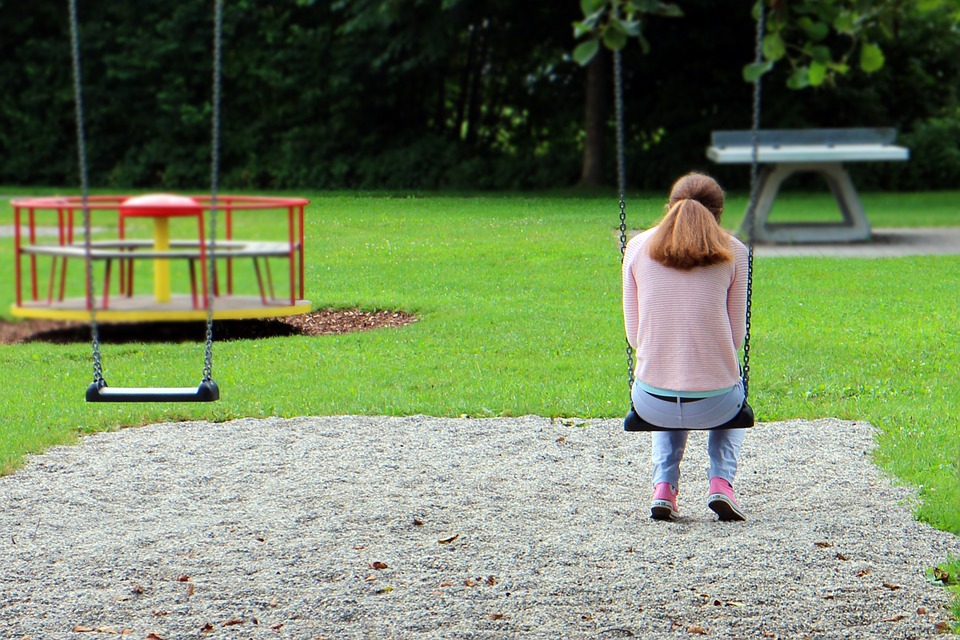
On visits, Alicia started noticing how the kids were coping with different care arrangements of which there were many. Sometimes there were no concerns and visits were happy and memorable occasions. At other times those observations were alarming.
I met the first lot of carers but that was it. I saw the new carers at the visitation centre but I didn’t like them. Their demeanor was a lot different. The kids started changing, more so Jane. Jane was very quiet, withdrawn and would just cling to me. She wasn’t happy and I could see that. She was different from what she normally was, her happy bubbly self. She just wanted to be with me, didn’t want to leave and she couldn’t tell me much. Kevin on the other hand, well, he didn’t even know how to wipe his own bottom when he went to the toilet. [He was four]. It means they didn’t really have much time for him. It confuses me, because I thought ‘the carers should be showing Kevin anything he needs to do for his hygiene. I think it was the first time that I heard my son say that he misses me. Jane said to me that she’d been wetting the bed. Before Jane was taken, she was already toilet trained. As soon as they were taken everything just went backwards. I was pretty annoyed about the situation. Kevin even said he was sad. Neither of them were very happy. The kids wanted to come home. Jane was telling me her actual address. I think that was a bit of a red flag for me, to tell me actually where she lived.
I rang them [DCS] up and I said ‘there’s something wrong, something going on here you might want to go and check it out.’ Their grandmother told them. Kevin’s father told them. We all told them there’s something not right there. We could all tell by the way the kids were acting yet they didn’t bother doing nothing about it. They just ignored me basically. Until three years down the track when all the damage was already done. I wasn’t even told when Jane was diagnosed with autism. No one told me that. I found out when I got them back.
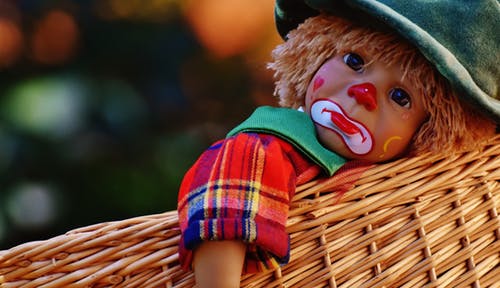
Alicia’s worst fears were realised when she learned from Jane about the trauma she had experienced in care. Jane being held over a 15 storey balcony, that absolutely disgusted me. I thought how dare you. My daughter told me in the end once she got a bit older, and maybe come to terms with what happened in her own way. She was five or six when it happened. She will never forget it. The worst part about it is the way I felt with seeing how upset she was. I tried to tell them [DCS] but they didn’t listen. The system failed the kids it’s a simple as that. They didn’t want to listen to what I had to say about what was going on over there. They just brushed it off as if it’s not happening.
Jane was always made to stand in the corner with her hands on her head. Kevin was a little bit different. He got to eat with them, he got to play the Wii he got to do whatever he wanted. Jane on the other hand, wasn’t allowed to play with Kevin, she wasn’t allowed to play the Wii, she wasn’t allowed to eat with them. The way my daughter was treated was appalling. Yet the system is trying to tell me that I stuffed my kids up. I thought ‘yeah ok, I did the wrong thing but the kids are a million times more damaged now from what they’ve let happen. Jane couldn’t tell anybody because they told her not to say anything. I still live with that guilt everyday with everything that’s happened to her. Regardless of whether I could do anything about it or not doesn’t make any difference. And they didn’t listen. I don’t know what’s happened out of this. I hope something has happened I’m disappointed and angry because I feel like it’s just been swept under the carpet. I just hope to God those carers don’t get any more kids.
I don’t know whether any of this abuse was documented. I hate the Department but I don’t hate the people. It’s just the department because of what I have experienced in my time with them and still experiencing in Queensland.
Kevin and Jane’s grandmother was so concerned about their welfare, she had spent four years and a lot of money on lawyers to get them into her care. They kept saying no. Eventually Jane stepped up and said there was something going on. She disclosed to DOCS that she was being abused. Then basically [DOCS] threw the kids at the grandmother and said ‘here you deal with it’. What I mean by that is that during the period they were with Leslie her mother died and DOCS didn’t even offer her respite. To put it nicely the kids were terrors, they’d already been through so much trauma. So she was trying to deal with the kids and the loss of her mother. It was really hard for her.
During that time Leslie lost her leg from the knee down because she is a diabetic. They still didn’t offer her respite. She had to rely another family members to come and look after the kids while she was at hospital or going to her other appointments.
It was really hard I guess for me because I knew that she was going through some tough times and I couldn’t help her any more than what I did already. Anytime the kids mucked up, she would ring me and tell me exactly what happened and when it happened. We were working as a team. I didn’t hear from them [DOCS] not like I had before. Now the grandmother had everything left up to her to do. Leslie was supportive of me. Because I’ve known her for so long, she knew what I was like when I drug-affected and when I wasn’t.
Eventually the kids were just running amok and she couldn’t do it anymore. I still take my hat off to her. I don’t know how she did it for 3 years. So one day she was giving the kids back because she just couldn’t do it for her health. [She started to have problems with her eyes]. I had her on the phone numerous times in tears because she felt bad. It broke her heart. She didn’t want the kids to think that she’d given them away, but it was her health.
After that the kids went to a residential care place which was ok. The kids were given what they wanted, when they wanted. Allambi taught Jane cooking and all that sort of stuff.
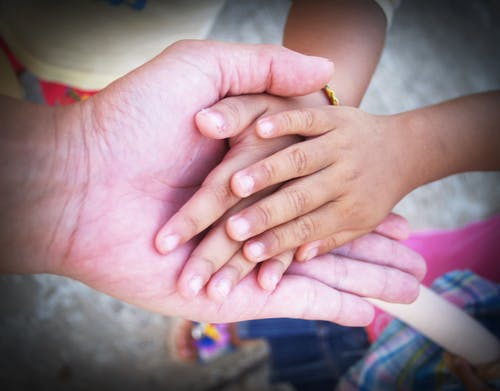
I did the Triple P program and the Bringing up Great Kids. I could actually use it on was my little granddaughter at the time. I didn’t see my kids enough to be able to use it with them, but I still did the program. I wanted to prove that I was doing beneficial things to better myself and that I’d never ever really stopped doing stuff, I’d just stepped back and was doing it in the background. They wanted some evidence of no drug relapse basically to find out what my chances of relapsing was. I am now 8 or 9 years clean.
They wanted to give the kids back but they turned around and said you need a three bedroom house. By the end of the week, I had a 3 bedroom house.
For Alicia, the reunification process felt like it happened way too fast. I was really heavily pregnant with Thomas. I was trying to prepare myself and I was like ‘arrrghhh’. In September, [the Residential Care staff] were driving the kids down, dropping them off Friday night and leaving them until Sunday at my house. It was a bit of a knockout, a shock. I actually had my kids staying over in my house for the first time since they were removed. It was really weird. It was great but then they got upset when they had to go back to care. That was hard letting them go because they didn’t want to go and me being pregnant would bawl my eyes out. I would cry at the drop of a hat.
By November, the children were back in Alicia’s care full time. It didn’t even seem real. It was like I was in a dream. I can’t even describe it. I guess for Jane it was good, but really difficult at the same time because of her having autism. Everything had changed. For [kids like] her, they don’t deal with change very well. It was good until the honeymoon is over.
Reflecting on the moment she got her kids back, Alicia has mixed feelings. I feel like I have a piece of my heart back, that’s not broken. There’s still a little bit missing. My heart’s basically just starting to heal now. I’m proud of myself for actually getting the kids back, because there’s not many people out there that get the kids back after so long.
Alicia says it is her pride she got back in court that one day in November, when the 18 year orders were overturned. That’s something I thought I would never hear. Every time I’ve been to court before, I was just basically run down. The kids were in 100% my care now. I had my own lawyer and the kids had their own lawyer as well. It’s definitely really important in case something is said the wrong way.
I wanted them [the kids] to hear what the judge said. It’s really important to show them how I felt about the situation and to show them to always say what you need to say, don’t hold back. If you want to say something, say it. Always stand up for what you believe in. That’s what I did.
Alicia reflected on the sort of mum she wanted her kids to see that day. A strong person, a really strong mum. Someone who’s willing to fight for what they want and show my kids how much they really do mean [to me]. Show them that I’ll never give up, never, ever give up.
Even when her children were back in Alicia’s care, the effects of child removal are never forgotten. To have another child, after your last ones are removed is scary. Walking out of the hospital with Thomas, I was s***ting myself. I thought someone might stop me or I’d be met at the door by DOCS. I thought I was doing something wrong.

Alicia does not hide the fact that being a mum again is hard work. It’s been a rocky road for the whole family.
When they [the kids] were in Residential Care, there was money for them to go out and do things. They did a paid activity once a week. So when they come back to me, they’ve gone from middle class to a lower class. You don’t get as much money being the parent than what you do when they’re in care. They don’t have that access now. I keep saying to them, ‘you’ve got food in your belly, you’ve got clothes on your back, you’ve got a bed to sleep in’. Jane tends to ask for money a lot for school so my answer is ‘I’m really sorry but I don’t have it’. It’s really tough. I didn’t realise how hard it actually was being a parent. Back then I lived in sort of a fairy tale thinking it’s going to be all rainbows and cupcakes.Alicia is committed to instilling strong values, despite the push back she receives from her now teenage kids. When the kids were at Residential Care, Kevin didn’t do a great deal around the house including his bedroom. The youth workers would just get in there and clean it up. But I don’t. I’m trying to teach them life skills. That’s their room, that’s their responsibility, that’s the way I look at it. I think it is it teaches them responsibility. I say ‘if you want to go to your friend’s house you have to give me something hence a clean bedroom’. The way I look at it is, I’m helping them as they’re getting older. I’m trying to teach him that it’s not a woman’s job to clean up after you. You clean up after yourself. That’s the whole thing, I’d like him to treat women with respect. Back in the old school it was a woman looking after the kids while the man went to work. Now it’s not like that. It’s both. They can both do the housework. They can both go to work. They can both look after the kids. It’s about sharing the responsibility.
Alicia had no idea that when her children came back, Trauma would also walk through the door. Kevin has been very closed in. He won’t speak to me. He would rather write me a letter instead of actually asking me for something. I don’t actually know what Kevin has had to deal with. The only thing that I know is that Jane is the one that was abused. I don’t really know about Kevin because we haven’t really had a chance to talk about the situation.
All I want to do is be able to help the kids, but it’s hard to help if you don’t know what’s going on, especially with Jane being autistic. It’s hard when she’s sad, happy, sad, angry, all of the above, she gets all the emotions in one. I asked her how she is feeling she goes ‘oh I don’t know Mum’ because it’s all these emotions all at once. I’m sad because I’d like to be able to help the kids but I don’t know what’s going on for them. Jane doesn’t know what’s going on for her. With Jane, I just sort of step back a bit. I’m still here, but not not in her face or anything. And then Kevin, he will usually come to me when he’s ready.
Alicia realises that she can’t do it all on her own. She credits other people in her life, for helping her get through difficulties with managing the children’s behaviour. The occupational therapist has an awesome rapport with Jane. When I need some advice about what to do or say I actually ring her and talk to her, she’s really good like that.
Alicia has also learnt a lot through her Certificate 3 in Disability specialising in Autism. It’s definitely opened my eyes a bit more and I’m starting to learn the NDIS. I’m a little bit more understanding of the actual disability itself to be able to try to help Jane in certain areas, because you have to approach things in a certain way. It could be using the right tone of voice. If you growl that creates frustration and doesn’t end well. It depends on what’s happening in the environment and who’s around, as to what happens.
Alicia identifies a number of strengths that have helped her get through the challenges of parenting now. Patience. That’s a big thing because if you haven’t got patience you’re in for a lot of fun. A lot of the time I use patience trying to get Kevin organised or to clean his room or walk the dog. If you don’t use patience the big monster comes out and starts roaring instead of talking.
Patience is something that Alicia has used in other parts of her life. When you come off the drugs you can end up really sick and it’s not pretty. I guess I started having that [patience] when I got off the drugs. It was very easy to turn around and go back, but I was like ‘no no no’. I just kept saying to myself to ride it through, ride it through.
‘Hard working’ is another strength that Alicia identifies gets her through the day to day. My workload has got big. Before I had the kids there was nothing really but now I get the kids up for school, organising, making sure the kids are ready, get them to make their lunch, get everyone in the car, drop everyone off. Yeah it’s pretty hectic now. But I wouldn’t have it any other way.
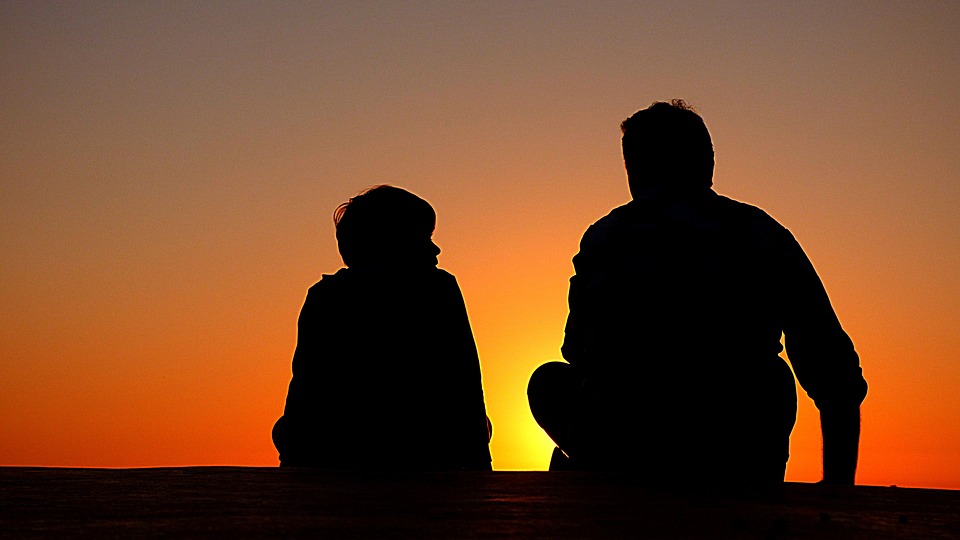
Skills, Knowledge and Qualities for Surviving Hard Times
Alicia believes her skills and knowledge for surviving the Child Protection system may be useful for other parents who are trying to get their children back. Let me tell you, it’s a really hard system. Speak up and if they don’t listen speak up again. All I can say is just keep going, until they listen. If not, go to the Ombudsman. If I thought about that back then, I probably would have done the same thing, I know that now.
Always go with your gut feeling because 99% of the time it’s right. Regardless of whether you spend 2 hours every two months with your kids or 2 hours every week with your kids you still know them regardless. If you see a change in them always speak up, don’t ever let it go. Alicia says gut feeling is a skill she developed over time to help her tune into the needs of her children. I didn’t really listen to it when they were young, but as the kids started to get older, I could always tell. I just felt sick a lot of the time.
Alicia says having a strong will helped her to never, ever give up. It kept me going it. It kept me continuing all the good stuff I was doing, like fighting another day, taking each day as it comes. Always be there for the kids, don’t miss your visits, be consistent. Strong will helped Alicia make the decision to move back to Sydney to live with her dad, to get her life back together. I just spent time working on me, not worrying about where I’m going to get the next drugs from. I just spent time on me and gave myself the chance to grow up. I took the time to basically take care of myself, still see the kids and do what I needed to do. Get back to my healthy self. But I missed out on seeing Chelsea.
I’ve done parenting programs. I’ve done Certificate 3 in Aged Care, Home and Community Care and just about finished certificate 3 in Disability and Community Services. I don’t even worry about drugs anymore I’ve got better things to do. I’ve been clean for nine years. It’s awesome I’m so happy about it. I still don’t know what I even got out of it. Numbness is the only thing I got out of it. I tell you now I would never ever go there again.
Alicia says stubbornness is a quality that has helped her get her kids back. When the Department had expected Alicia to tow the line and do rehabilitation, she had other ideas about what was best for her. I didn’t want rehab because I thought ‘No I can do it myself’. It made me sad that they [DOCS] would say that to me but the other half of me was more determined to prove them wrong. I was going to get those kids back no matter what. People can turn around and say ‘you can’t do this’ and I turn around and go ‘right that’s a challenge’. If people say that I can’t do it, I say f*** no, I’ll show you how it’s done. A year before I gave up the drugs I would walk down the street and there would be other mum’s with their kids. I would sit there and say ‘what am I doing this s*** for’? I should be like them’. I just said ‘I’ve had enough’ and stopped. It bloody wasn’t easy.
For all those times that Alicia had the door slammed in her face, it just made her more determined. It made me push harder that’s what it did, I wasn’t taking that. Regardless of how I felt, I said ‘no’. I moved into the background. I continued what I was doing and just kept plugging along with or without them [DOCS]. I had to keep going because I didn’t want my kids to think I didn’t fight for them. One day if the kids want to look at all the files, they can do that to through Freedom of Information. They will see that I did for fight for them, that I didn’t give up. I always had them in mind every time I did something new.
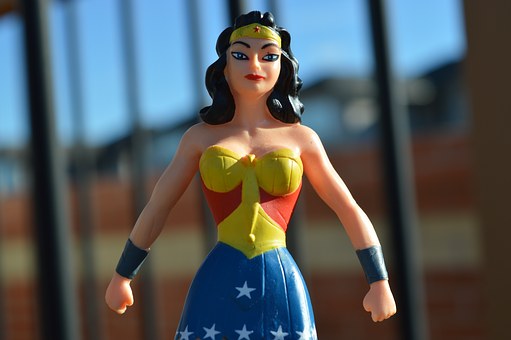
A Message to Other Parents
Much of Alicia’s advice to other parents is linked to the two core beliefs that Alicia shared at the beginning of this story. That is every family should be together no matter what and every child deserves a great childhood.
Other parents in the child protection system sometimes give up. Alicia has some ideas on why this might be the case. I believe that some of the hoops that DOCS try to get you to jump through, it just continues and continues. They end up with self doubt. It makes them lose sight of what they want. They think they’re going to get something, but not always. From my experience jumping through all these hoops is never-ending. It depends if stuff is actually explained properly, because I mean some people might understand, but other people might not fully understand what is expected of them especially if they’re young like I was. I was 21 when I lost my kids and at that stage they walked all over me and just gave up on me in the first place.
DOCS wants you to fall apart and give up and then they don’t have to worry about you. Even though I did a little bit when the kids were first taken, then I pulled my socks up. I pulled my arse into gear and got my s*** together. That’s what DOCS wants, because then they can turn around and go ‘Yeah I told you so’.
You can’t give up, no matter how much you want to. If you give up, you’re not only giving up on yourself, you’re giving up on your kids. If I don’t fight for them who’s going to? Nobody fights harder than their parents and the kids for that matter. No matter what they [DOCS] throw at you, use it, use it to your advantage. Listen to what they have got to say, regardless of whether it’s good or bad, just use it as a strength. If they say you can’t have your kids back don’t believe that for a second. Believe what you want to believe. If they say ‘you can’t have it’, you say ‘yes I can’.
Alicia says guilt held her back from asking for help. I’ve always been independent and wanting to do things myself. I’ve always blamed myself for everything that’s happened. I thought I could do it on my own. I just basically sucked it up. It was hard but you’re better after. There’s automatic relief but it’s a matter of actually being able to ask for help. Even if you don’t have a great deal of family around, don’t be discouraged by that. If you need help, reach out. There’s services around that will help you. You’ve just got to get out there and find them. Never be afraid to ask.
For parents that are in the process of getting their children back, Alicia has some wise words to share. I just want people to be a bit more better equipped for what’s going to happen.
There are ways of working with lawyers that Alicia believes is important. Make sure that they hear exactly what you want to say, exactly the way you tell them. Make sure you tell them, it doesn’t matter how small the details. Make sure that they tell the judge what you want the judge to know. It’s really, really important.
In working with DOCS and the court system Alicia also has some advice. Keep your mindset about the kids. Make that your whole motivation while you’re there. Always make sure that you’re well presented, that actually means a lot. It could mean wearing your black and whites. Make sure you’re wearing clean and tidy clothes. Make sure your hair is brushed. Always sit there with your chin up because it shows that you’re listening, you’re listening to every single word that’s being said. You don’t want them to think that you’re not listening because trust me that doesn’t go very good. At the end of the day whatever you do or whatever you wear, use the fact that you’re there for your kids as your motivation always.
When all may seem hopeless and lost, Alicia has these final words. When it might seem like the end, let it be the start. My biggest thing is never give up. Never be discouraged. At the end of the day it’s all about the kids. No matter what you think or do, I always think about the kids.
And even if you can’t get your kids back, Alicia agrees you can stay active in their lives. Make sure they always know where you are, that you are always there.

An Invitation to Connect
Alicia hopes that by sharing her story, the voices of other mums and dads are heard and taken notice of by ‘the system’. I want to encourage other parents to document their story as I have done, as it has been a wonderful healing process for me.
After reading Alicia’s story, we invite you to write a message to send back to her . Here are some questions to guide your response.
- As you read Alicia’s story, were there any words that caught your attention? Which ones?
- When you read these words, what pictures came to your mind about Alicia and what is important to her (ie. hopes, dreams, values and beliefs)? Can you describe that picture?
- Is there something about your own life that helps you connect with this part of the story? Can you share a story from your own experience that shows why this part of the story meant something to you?
- So what does it mean for you now, having read Alicia’s story? How have you been moved? Where has this experience taken you to?
Please send your message to Lucy Van Sambeek at lucy@metaphoricallyspeaking.com.au
If you would like to connect with others who are touched by the experience of child removal, please join us on our closed Facebook Group.
